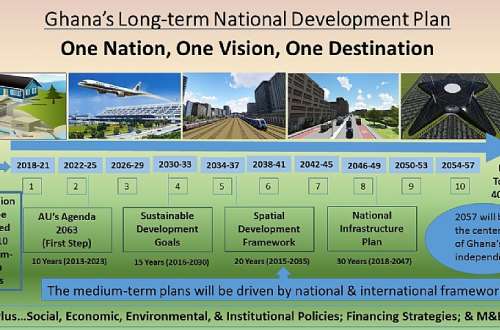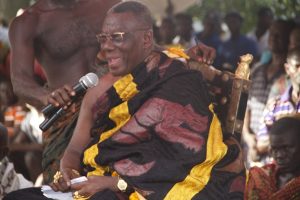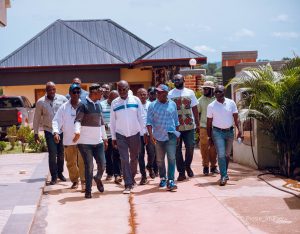The National Development Planning Commission (NDPC) says it has taken steps to review Ghana’s 40-year development plan and set “clearer” and measurable targets to enable citizens to effectively assess governments.
The Commission said it would break down the Agenda 2057 plan, simplify it for the understanding of the public and set specific targets for various sectors of national development.
In 2018, Ghana adopted a 40-year development plan (2018-2057), with the vision of achieving “a just, free and prosperous society” by 2057.
The plan provides a framework for national development in line with the NDPC’s mandate enshrined in Articles 85, 86 and 87 of the 1992 Constitution.
Addressing journalists at a meeting in Accra, Dr. Kodjo Esseim Mensah-Abrampa, Director-General, NDPC, said the Commission would convene a two-day National Development Summit from December 20 to December 21, 2023, as part of the review process. Dr. Mensah-Abrampa said the review of Agenda 2057 had become necessary as some assumptions and projections that were made in the document had changed and that there was a need to set fresh targets.
He said the Commission would like to develop plans that the people would own to enable them to demand accountability alongside the national development agenda.
Dr. Mensah-Abrampa said Agenda 2057 appeared technical to the public, thus the need to break it down into specific plans that could be easily identified and measured.
Dr. Mensah-Abrampa said development plans developed by the NDPC were not binding on governments, but once they were approved by Parliament, they became statutory documents for the country, which should feed into all facets of development planning.
He said citizens must know the targets and vision for the country and use that to measure and demand accountability from governments.
Dr. Mensah-Abrampa emphasised that development is also crucial for the creative and sustainable exploitation of the country’s abundant natural resources. According to him, the country’s socio-economic transformation and growth hinges on how it can intentionally invest in its development.
Making a strong case for development to be given increased attention, the DG for the NDPC said urgent strategies and steps are needed to enhance and optimize the skills, knowledge, abilities and overall potential of the Ghanaian workforce
by Isaac Clottey













